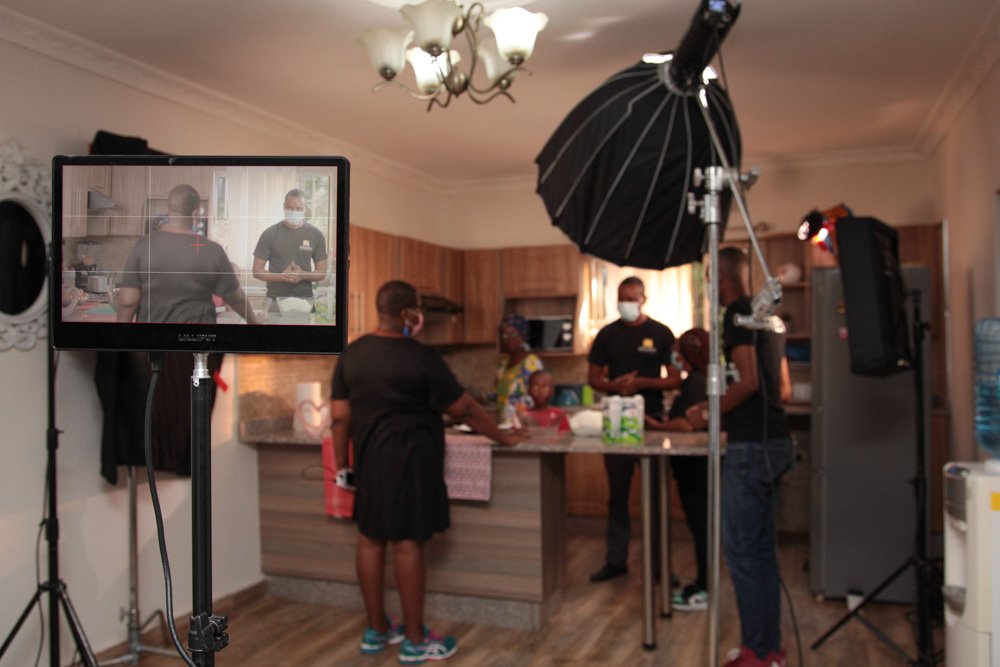Msekese
the birth place
of your thorny dish
Kingspirit profiles Michael Hacking of Msekese Fisheries, our Zed Farmer for Zambia Farmers Day 2022. We learn, laugh, and gain appreciation for the fish farming industry.
A short trip south of Lusaka at a farm at the border of the city, around the traffic circle, back again, then a short left, and it’s welcome to Msekese Fisheries. Down a scenic dirt road with old trees hanging over your path like a portal to a beautiful homestead, we finally arrived.
As the dust settled from the van, our crew was greeted by smiles from a tall, young and charming gentleman, Mr. Michael Hacking, the ‘Zed farmer’, whom we would be interviewing.
After pleasantries were exchanged we unpacked our photography gear and light sets, and followed behind as he navigated us through the facilities. For people who live behind a computer, these views were special; we are not accustomed to blades of grass brushing our knees, only corners of office desks. Kingspirit Imageroom is an outstanding advertising agency with an in-house film production team that tells Zambian stories authentically. We had been following the work of Mr. Hacking for a while and were pleased to finally sit and tell his story. We saw this as an opportunity to break out of the corporate and commercial, and create content that appreciates our farmers, and… leave the office.
At this point, Michael walked us in the expansive greenhouse facility, bigger than any of us had ever seen, the door opened, we dipped our shoes in disinfectant water, walked in, and the interview began;
Michael: Welcome to the farm guys, what are we doing today?
Muzi: Thanks Michael, pleasure to visit your farm. We’d like to chat about the farm, the projects, and of course, the story of Msekese Fisheries.
Michael: I am delighted to, let’s do it.
Muzi: When did you start the company, where did this journey begin?
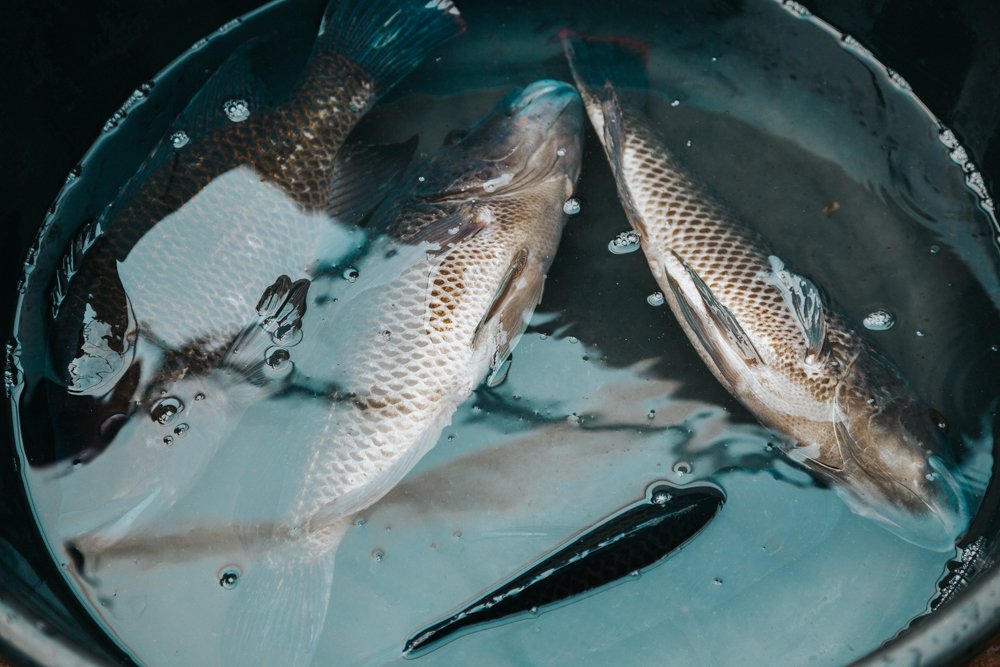
Michael: We started construction of the facilities in 2015, then we began production in 2016.
Muzi: What kind of fish are farmed here at Msekese Fisheries?
Michael: These are Three-Spotted Tilapia, it’s an indegionous species to Zambia, we have gone with ‘Support Local’ with our business.
Muzi: What are the optimum seasons for fish farming?
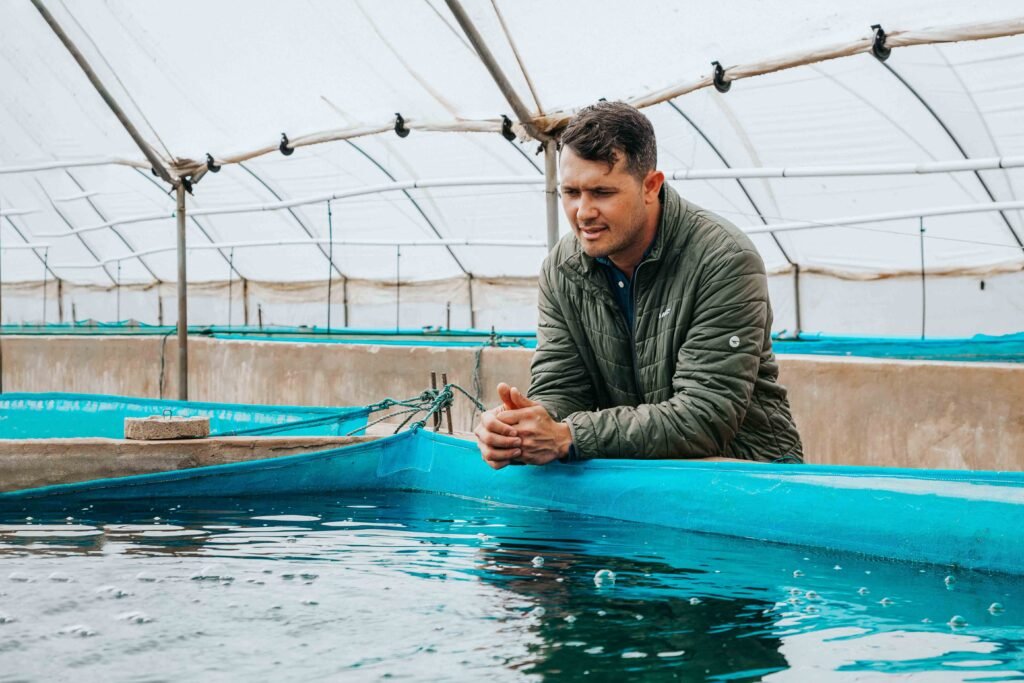
Michael: You are looking at your warmer months, August to April, as soon as it gets cold, the performance of your fish drops.
Muzi: It’s quite warm here, in the greenhouse, is there a reason for this?
Michael: Optimum temperature for breeding Tilapia is 28 Degrees Celsius, we use our greenhouses to control the environment, essentially to allow favourable conditions for breeding. As you can see, we have two lines of tanks, A-Tanks, and B-Tanks, 15 on each side. We usually stock both tanks with males and females, but we have split them at this moment as it’s off season. If you look closely you’ll see them.
Our thoughts: We couldn’t see anything, but we just said yes, but he insisted we take a closer look. He described them as being nearly forearm length, we were in disbelief.
Muzi: There’s fish in there?
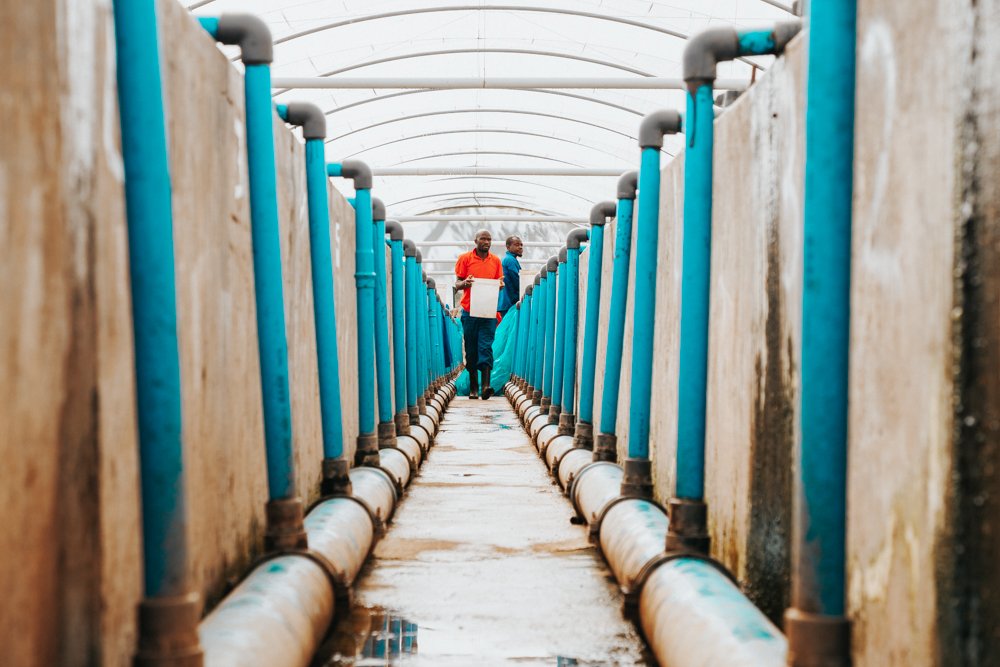
Michael: Yes, look towards the edge, it takes a trained eye to see them.
Our thoughts: After a squint!
Muzi: Ohh yes! I can see them.
Our thoughts: We were quite proud of ourselves. At this point Michael asked his team to capture a few for us to examine closely. I was particularly interested in seeing why they are called: ‘Three-Spotted’ Tilapia.
Muzi: Which tanks are these?
Michael: Here we have our breeding tanks, we stock a ratio of 3 females to 1 male, with oxygenation around the clock, still creating favourable conditions for breeding.
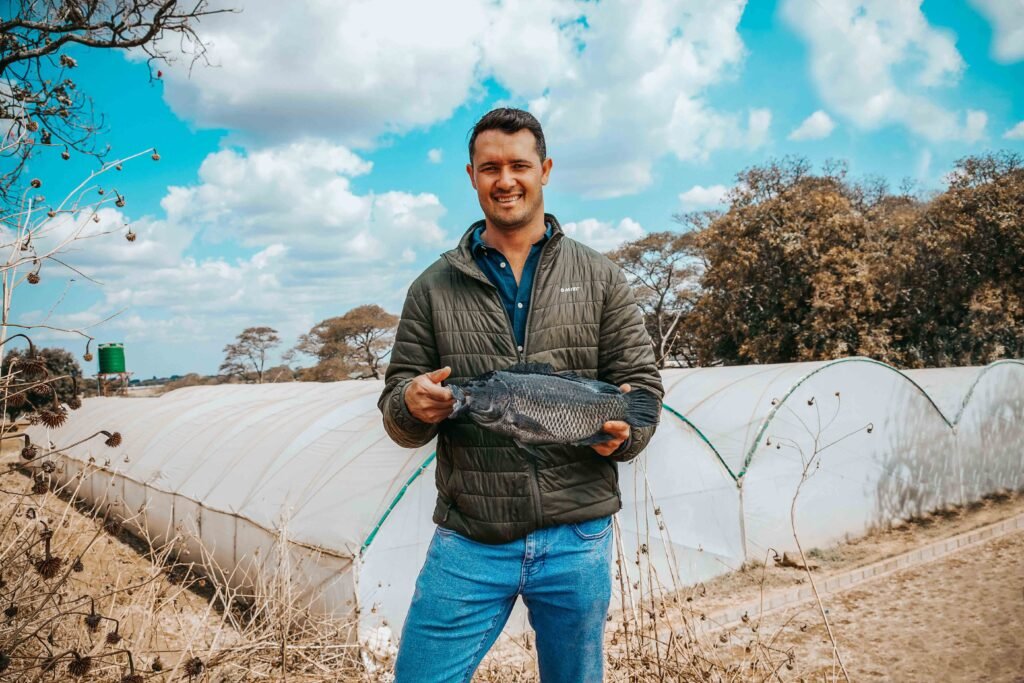
Muzi: How often do you harvest?
Michael: We do this every 10 days, going through every single tank. The female’s mouth-brood, which means she keeps her eggs in her mouth. We go through all of them, removing them from their mouths, then we separate them according to the stage of development, then we bring them to the incubation station. We keep the eggs in incubation jars, keeping the water constantly circulating, and they slowly develop the egg to fry when they hatch. Then we transfer them onto trays and they stay there for 3 to 5 days. We then transfer them to the nursery tanks, behind this facility.
Muzi: What are the challenges you face in these processes?
Michael: With regards to the hatchery, we face challenges such as diseases, this is why we had to dip our feet in the treatment water before we entered.
Muzi: What sort of diseases are common in Zambia?
Michael: The biggest we face is the fungal diseases, that’s caused by handling and temperatures. Sudden drops in temperatures creates stress on the fish that results in fungal infections. We also get bacterial infections but fungal infections, for us as a hatchery, is what we suffer with the most.
Our thoughts: My skin started to crawl immediately!
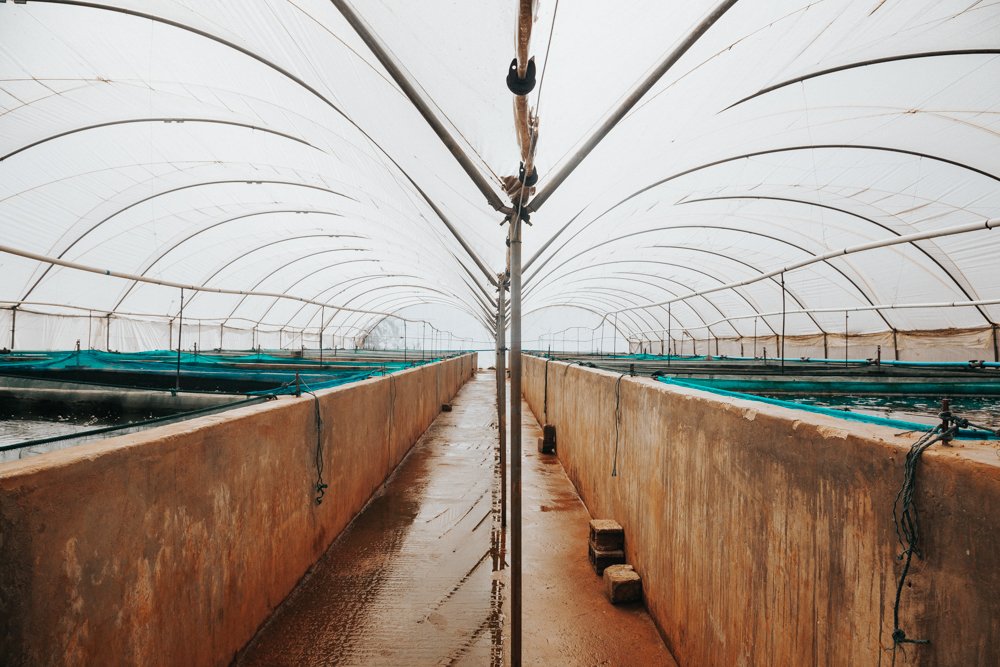
Muzi: Is there a particular reason why Tilapia is the chosen breed for your hatchery?
Michael: In terms of demand in Zambia for fish, Tilapia is right up there, hence why we’ve gone for Tilapia. This initially was a pilot project, with plans in working in grown-out (growing the fish to market size) but shortly after 3 months in business, we then realised there was no seed, the fingerlings, this is why we focussed on the actual hatchery and breeding.
Muzi: So you supply other fish farmers with fingerlings?
Michael: Yes, so our main business is supplying customers, small scale farmers, across the country, with fingerlings.
Muzi: How do you deliver them?
Michael: We package them in plastic filled with water with medical oxygen. The high-concentration of oxygen allows them to travel long distances, rural areas, Western Provinces; from here, it’s quite far.
Our thoughts: His team brought 4 large fish, live, in a bucket, our cinematographer was startled by what looked like snakes in water. We regret not capturing it on camera.
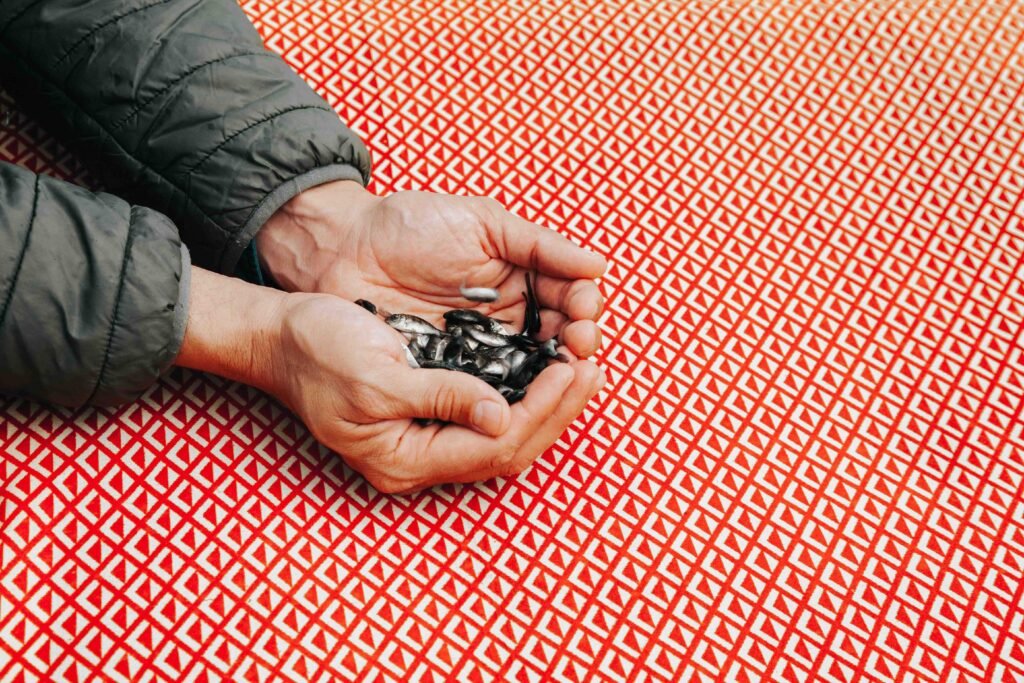
Muzi: The only big fish you keep are breeders for the eggs.
Michael: Yes that’s right, these are our first generation, they are quite docile because they are used to being handled. We keep them for genetics and research – we use their bloodline, but also for sentimental reasons, they can live a little over 11 years. We sourced our breedstock from Kalimba Reptile Farm.
Muzi: What sort of breeder fish do you look out for?
Michael: Dress-out, long, small head, bigger body – because, more meat, the customer always goes for fish with more meat. I also look out for how fast they grow, are they disease resistant, all these factors contribute to a good breed stock. We try through selective breeding to have our own super breed, but it is difficult because it’s technical. We are always looking out for assistance in getting the right breed stock. The government is also working on a genetic improvement programme at one of the research centres. We should have a superior breed stock from them by 2023.
Muzi: Do you export outside Zambia?
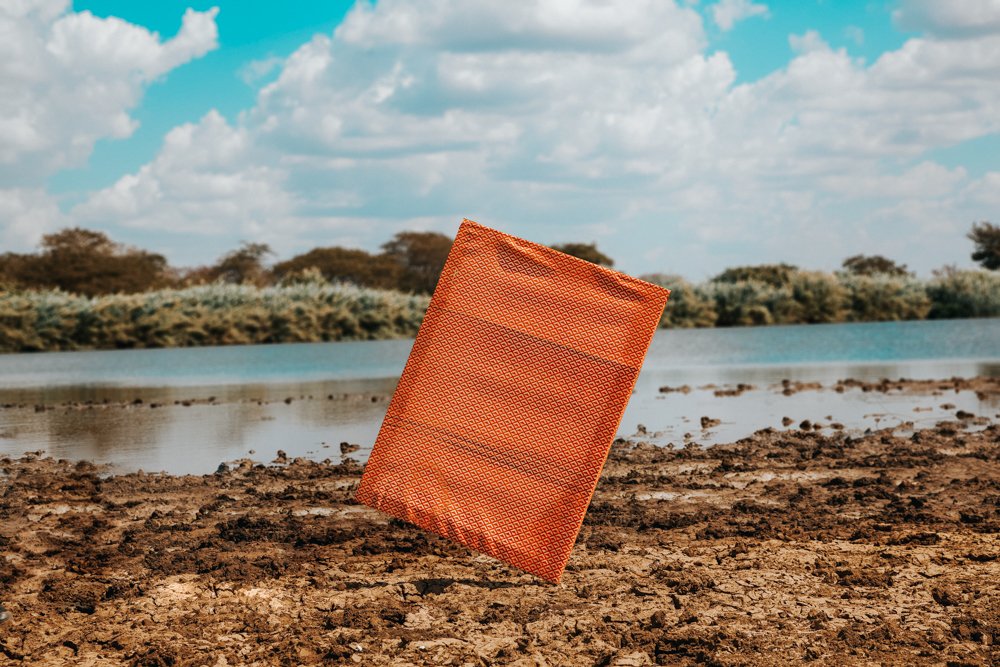
Michael: Fingerling transportation isn’t easy, our stock is for local farmers. Once they grow the fish out, the export can then take place as the finished product.
Muzi: Kindly show us the nursery greenhouse?
Michael: No problem, interesting enough, we not only use the greenhouses to control the temperature, but to protect the fish from predators.
Muzi: What sort of predators…?
Michael: Kingfishers, Wagtails. The Wagtails are a notorious black and white bird, with a tail that wags. We didn’t know what was happening to our fish. It got too hot in October, so we opened up one side of the greenhouse. Unbeknown to us, when there was no one in the premises, these birds would fly in, sit by the edge of our trays, filled with fry, and they would feast! Buffet, all you can eat!
Our thoughts: We all laughed but this was serious…
Michael: We were losing fry worth K60,000 every week, and we couldn’t put our finger on it. Until we started paying attention, it was the birds. Birds in farming, in general, can have a serious impact on your business.
Muzi: This is the nursery?
Michael: Yes, this is it, once the fry are ready to be transferred, we bring them here to grow them to fingerling size. There are 70 tanks in total operating in a recirculating aquaculture system, whereby the water is constantly recycled.
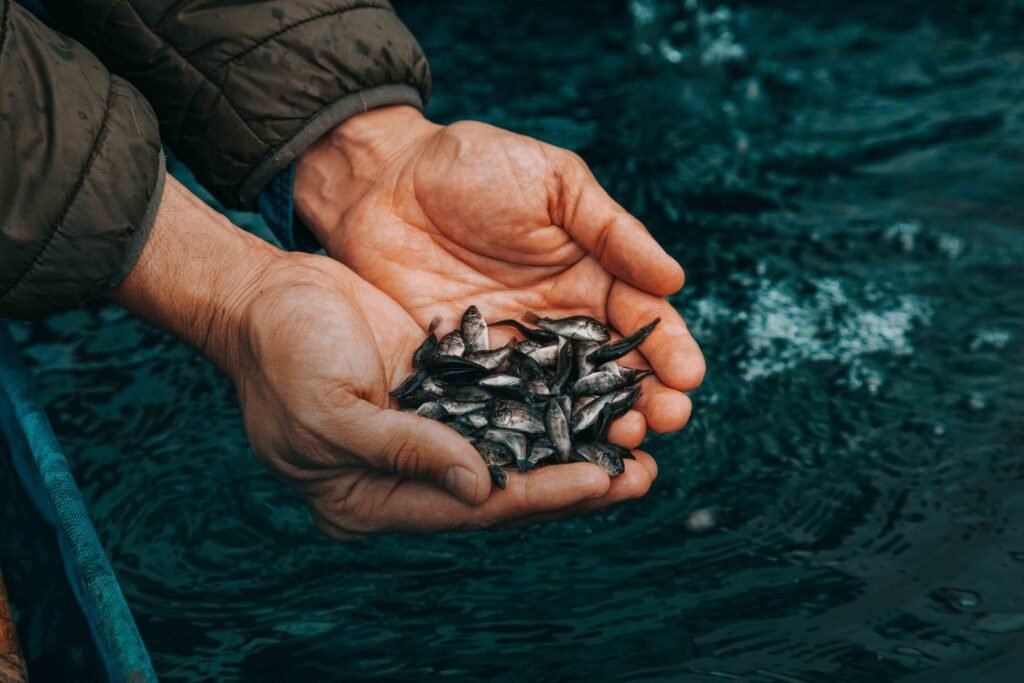
Muzi: So this is environmentally friendly practice?
Michalel: Yes, conservation of water. This is how it works; The water drains and goes through mechanical filters, then into bio filters. The bio filters have plastic beads that microorganisms grow on, they eat the ammonia, nitrates, etc, which are produced in the process, then the water is cleaned and pumped back into tanks. While the tanks are empty we clean them then retransfer the fish.
Our fish stay here for 21 days when we do a sex reversal, we introduce a hormone that changes the gender to males because that’s what our end user want, they grow faster and bigger.
Muzi: The fish can change gender?
Michael: During the early stages, the first 11 days, the gonads go through development, so you can alter it by giving them a hormone. The farmer wants the biggest yield and biggest fish possible.
Muzi: Did the coronavirus pandemic affect your business in any way?
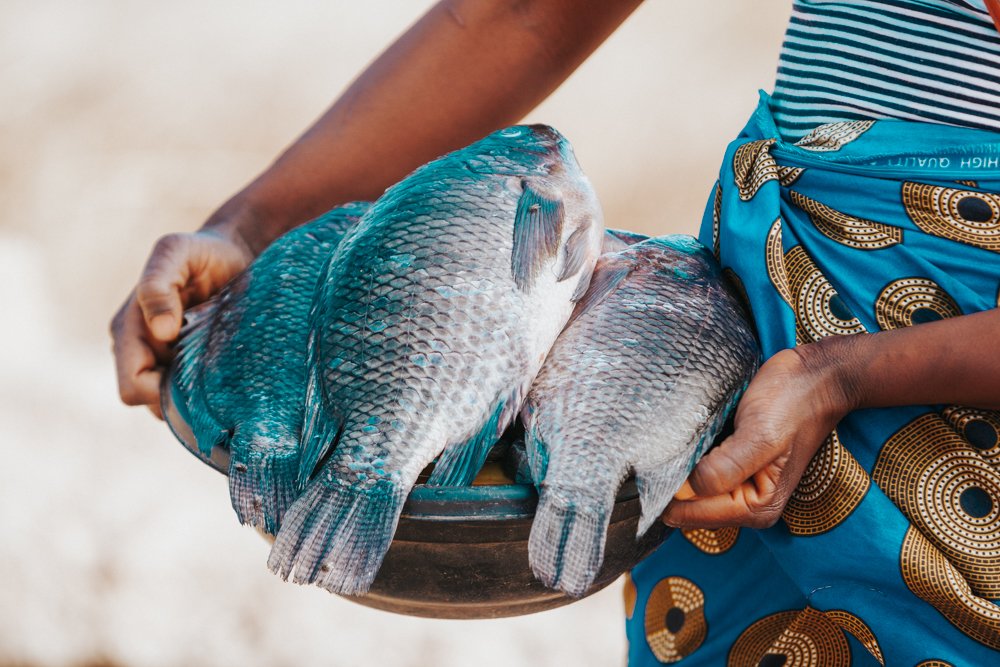
Michael: It hit us during our expansion period, so we were unable to get inputs as logistics was affected. But demand didn’t drop, food is food, we all need to eat, the value chain demands that we keep producing.
Muzi: Do you have an existing internship programme?
Michael: Yes, we have had up to a combined total of 20 students who have come through over a long period of time, with regards to best practices in hatcheries and fingerlings. We offer training to the public, depending on individual needs.
Muzi: As a Zed Farmer, what impact do you have in the fish industry and national food security?
Michael: Last year we produced 3 million fingerlings, which has a significant amount of available fish in the market, which provides food security, and helps retailers earn money down the value chain. As a company we strive for rural development, by supplying these areas, we hope that we help those small economies thrive.
Muzi: Would you have any message to a person aspiring to venture into fish farming?
Michael: The number one thing is perseverance, no matter what you do. We faced some difficult times, learned from mistakes, and never gave up. Number two, consulting, get an understanding of what you want to do, the due diligence in getting the right people to work with, getting onboard with the right people, so that your project can be a success.
Muzi: Are there any mentors you had? What was your learning process?
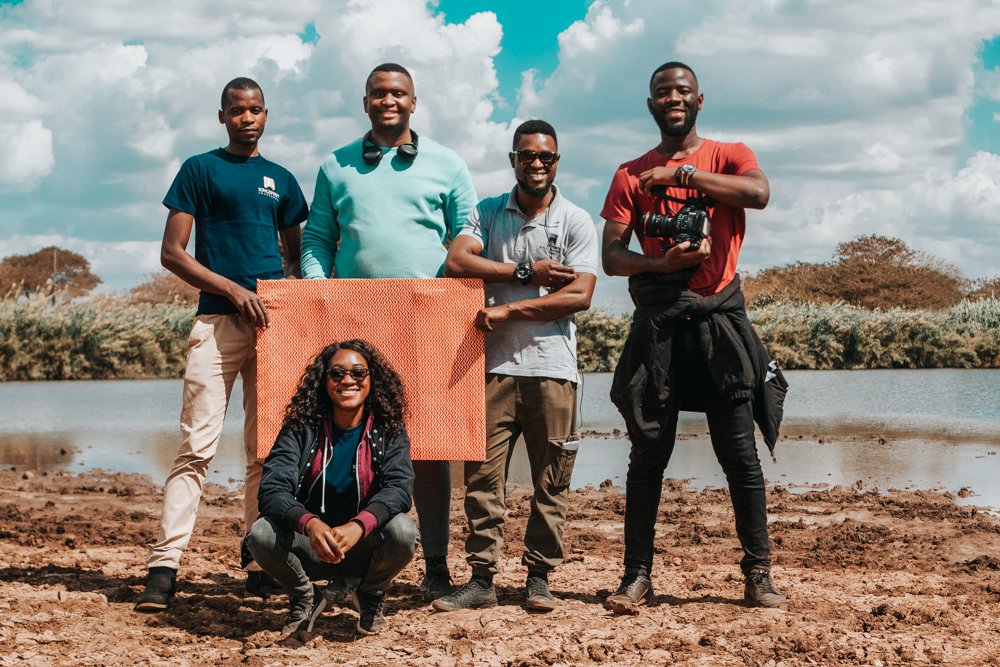
Michael: I have an accounting background, I studied in South Africa, then moved back to Zambia where I am from, then we started the company. It was tough, but the opportunities in Zambia for this project, and seeing the younger generation succeed really pushed me to make this work and carry on this venture.
Muzi: Do you offer fish farming consultancy?
Michael: Yes, we do consulting for large scale farmers on best practices. However, for small scale farmers, we usually have no charge because we rely on them too. When they succeed, we succeed.
Muzi: Thank you so much for your time. Would you have a parting message?
Michael: It’s been a pleasure. We are happy to help anyone really, on getting started on the right foot, a lot of the time, people spend so much money and time, and get things wrong. They get discouraged and never attempt again, or simply have no money to try again. I believe in always getting started off right, then patience will play its part.
Previous
Next
We proceeded to visit fisherman and fish markets in Kafue River and along the Kafue Roadside. We wanted to appreciate the value chain that we had followed from hatchery to market. We learned so much about this industry and how it enriches the lives of people who keep it going. So little thought goes into who farmers are and their lives, yet the industry employs 50% of Zambians, and contributes nearly 10% of the GDP. Are you looking to go into farming? What farmers are you appreciating this farmers day and farmers week? Farmers day, to us, will never be the same again, this story has been retold. We hope that you will appreciate a farmer this Farmers Day, as we did Mr. Michael Hacking. If you would like us to tell your stories, Kingspirit Imageroom are content creators, change makers, trend setters, brand transformers, creative evolvers, and storytellers.
Kingspirit Imageroom, Producer
Muzikayise Mthethwa, Creative Director
Wakapembe Chisha, Photographer
Mwiza Shapi, Cinematographer
Alex Sakala, Key Grip
Alfred Muleya, Office Assistant
©2022. Kingspirit Imageroom Ltd. All rights reserved
Facebook
Twitter
LinkedIn
Previous
Next
RECENT POSTS
SOCIAL MEDIA
SUBSCRIBE TO OUR NEWSLETTER
About Kingspirit
Image Room
We are a team of truly creative people with technical expertise in Photography, Film-making, Brand Development, Advertising, & Graphic Design.






